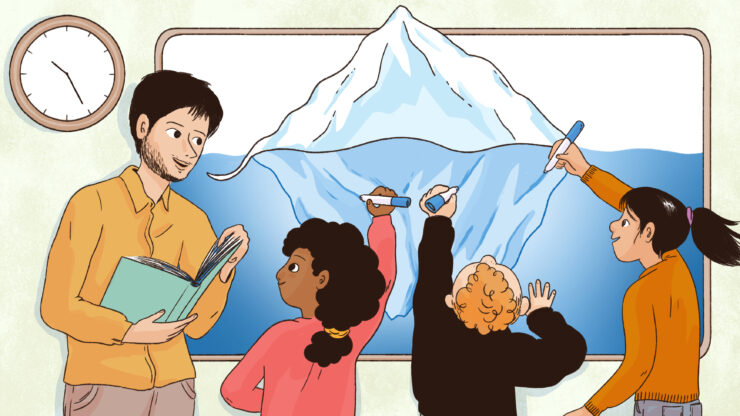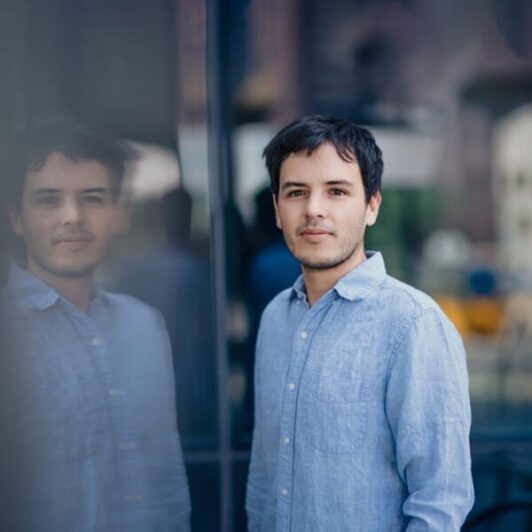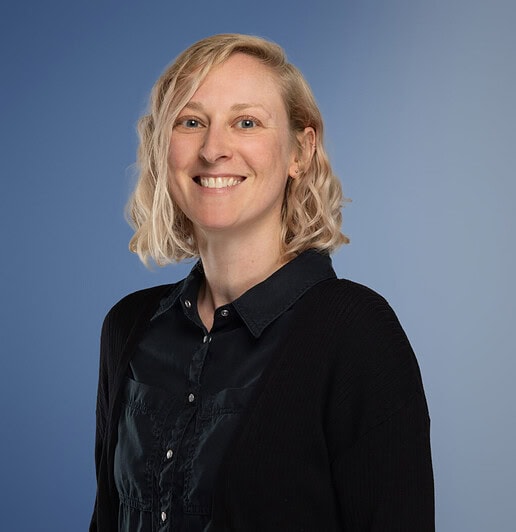The cognitive scientist studying how children think about others’ minds
Julian Jara-Ettinger explores what children learn from their social environments

Julian Jara-Ettinger and his lab are investigating how we think about other people’s minds, and specifically how children use their understanding of other people’s minds when learning. Annie Brookman-Byrne finds out more.
Annie Brookman-Byrne: What are you trying to discover about social reasoning and learning?
Julian Jara-Ettinger: Thinking about other people’s minds is so natural and effortless that we often don’t notice we’re doing it. We think about other people’s minds when observing and talking to others, and when engaging in social activities, such as working together towards a goal.
One of the most important things this allows us to do is share knowledge. When teaching children, we think about what they know: We instinctively adjust the order in which we introduce ideas and the complexity of the language that we use, based on what we think they’ll be able to understand. Children, in turn, are not like sponges, passively absorbing facts; they actively think about the teacher’s mind, which helps them improve their learning. For instance, when a teacher selects an example to explain a concept, children gain deeper insights by thinking about why the teacher chose that specific example.
“Children… are not like sponges, passively absorbing facts; they actively think about the teacher’s mind.”
My research looks at the fundamental cognitive processes that support this kind of social reasoning and learning. To that end, I use a combination of developmental, computational, and cross-cultural methods to understand how people think about the thoughts of others.
ABB: What changes have you seen in research in this area over time?
JJE: Historically, research into how we think about other minds has focused on universal principles—what we all have in common. However, more and more scientists are recognizing that this capacity varies across children and across cultures. This means that thinking about other minds is not a single uniform capacity that every child acquires in the same way.
There are many different ways of thinking about other people’s thoughts. This variability does not mean that some children are better at it than others. Instead, children probably learn to fine-tune this capacity to suit the specific social environment in which they are growing up, learning to reason about the people they normally interact with. Although most researchers would probably agree with this view, we still know surprisingly little about the nature of this variability. Our current models of understanding don’t yet effectively capture or explain these differences, or the factors that drive them.
ABB: How will your research help children?
JJE: To help children around the world, we must understand what makes an effective teacher. But there is no one-size-fits-all approach. Teaching effectively requires adapting to the topic, the school’s cultural context, and the individual child. I hope my research will reveal how children learn from others, and shed light on the variability in social learning. This understanding can then help adults and educators adapt to a changing world, enabling all children to thrive.
“To help children around the world, we must understand what makes an effective teacher.”
ABB: What are the biggest mysteries in children’s social reasoning?
JJE: One of the most interesting things about children is that while they often make mistakes that no adult ever would—like misinterpreting what someone says—they are remarkably sophisticated in their understanding of other people’s minds. In fact, two-year-olds outperform adult chimpanzees and orangutans on social tasks. This suggests they have very strong social reasoning skills that are unique to humans.
The challenge is to understand how children can simultaneously excel at some social tasks while struggling so much with others. One common explanation is that some tasks are simply more difficult than others. But it’s also possible that children are particularly skilled at reasoning in social learning contexts, where their social skills shine.
ABB: What are your hopes for the future of this field?
JJE: Historically, there has been surprisingly little contact between researchers studying education and those studying basic cognitive processes in children. This is a big problem, because it limits the degree to which research is translated into practice, and it prevents researchers from benefiting from educators’ insights into how children think and learn. To solve this problem, we need a strong infrastructure that includes scientists studying the cognitive foundations of learning, large-scale global studies that capture variability in learning and reasoning across ages and cultures, and connections to policy and practice that allow us to develop tailored methods for supporting children’s learning.
Footnotes
Julian Jara-Ettinger is a cognitive scientist and associate professor at Yale University, where he directs the Computational Cognitive Science Lab. His research explores how humans—especially children—understand others’ minds, integrating aspects of computational modeling, cognitive development, and artificial intelligence. Julian grew up in Michoacán, Mexico, where he studied physics and mathematics before earning a PhD in cognitive science at Massachusetts Institute of Technology. His work aims to understand how people are able to think about what other people are thinking, and how this enables them to develop complex abilities such as rapid learning from others. Julian is a 2024-2026 Jacobs Foundation Research Fellow.
Julian’s lab website and Julian on Bluesky
This interview has been edited for clarity.
One comment
Comments are closed.


I would love to learn more about this research. I am a retired Kindergarten teacher, who struggled all my life with learning in school.